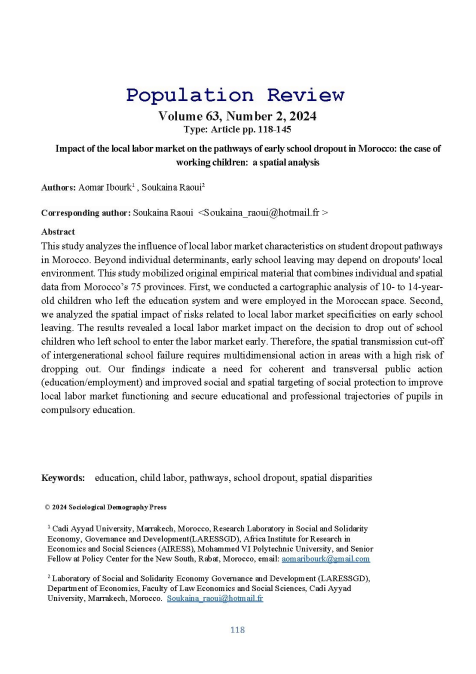Publications /
Policy Brief
لقد حققت معدلات الدخل ومستويات العيش تحسناً غير مسبوق في العديد من مناطق العالم، وذلك بعد أن عرفت ارتفاعاً مطرداً على مدى عقود متتالية. بيد أن آفاق التجارة العالمية والنمو الاقتصادي ما تزال محفوفة بالغموض، كما يبدو أن النزعة الحمئية سائرة في تزايد مستمر. ففي الدول المتقدمة، هناك قلق ناجم عن فقدان الوظائف التصنيعية التي شغَّلت فيما مضى فئة كبيرة من العمالة، وخلقت طبقة متوسطة شكلت نواة الديمقراطية في هذه الدول. هذا ولم تنجح معظم الدول ذات الدخل المتوسط في اللَّحاق بنظيرتها العالية الدخل رغم عقود من النمو. من جهة أخرى، فإن التقدم الذي تم تحقيقه في الدول ذات الدخل المنخفض، خاصة منها دول إفريقيا جنوب الصحراء – من حيث تحقيق النمو في الإنتاجية وتفعيل التغييرات الهيكلية، والتي تعد من السمات الرئيسية للتنمية الاقتصادية – لا يمكن اعتباره مشجعاً، بل إن بعض الدول شهدت تحولاً هيكلياً عكسياً، وفي بعض الحالات وصل الأمر إلى انكماش النشاط الصناعي








